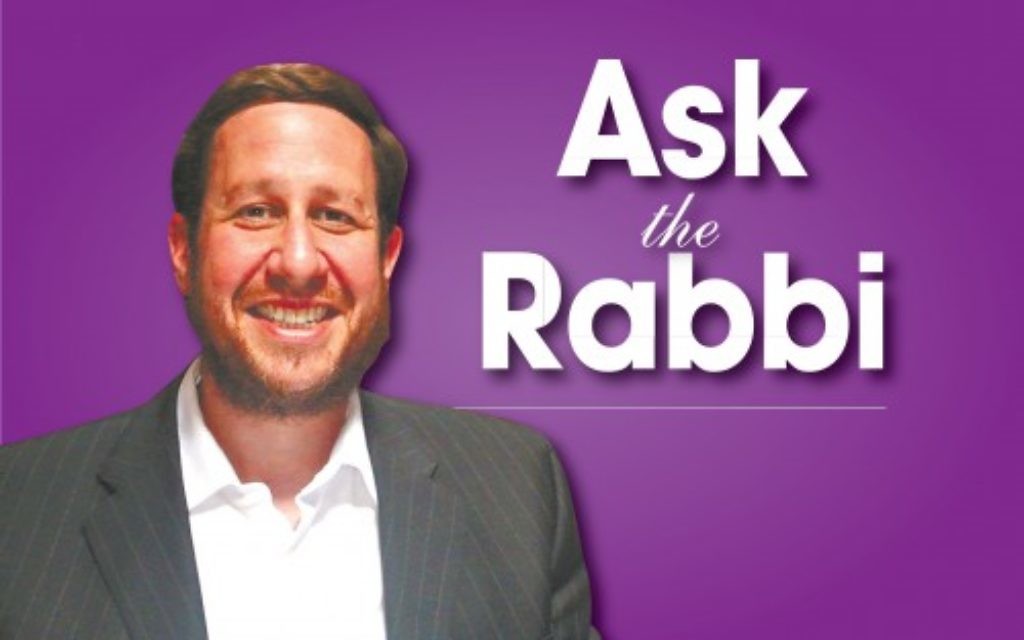Ask The Rabbi – 28/11/2013
Dear Rabbi,
All my life I used candles for Chanukah. This year I am married and my husband insists we use oil. It’s messy and I want to know if it really makes any difference. A light is a light after all.
Sandra
Get The Jewish News Daily Edition by email and never miss our top stories Free Sign Up
Dear Sandra,
You see! That’s what happens when you don’t cover the fine print on your dates. Every potential couple ought to be asking one another what they use on Chanukah and if there is a clash of custom that should be a deal breaker. Seriously?!
Firstly, he is lighting, not you. As his wife, you fulfil your obligation with him. Secondly, as a general rule, the husband’s customs prevail: i.e if he is Sephardi and you are Ashkenazi, you’ll eat rice on Pesach, but not vice versa. Finally, his time-hallowed custom versus your cleanliness concern, which do you think should take precedence? And for what it’s worth – no, a light is not a light. Jewish law does stipulate that the ideal mitzvah is celebrated with oil just as the miracle all those years ago occurred with oil. So why don’t you give your husband a really nice present on your first Chanukah together as newlyweds – and let him light with oil.
Oh, and if you have a similar crisis on Purim because he wants prune hamentashen and you insist on jam ones, don’t write to me – get professional help.[divider]
Dear Rabbi,
As a Sephardi Jew, our custom is to have a special celebration feast on Chanukah and I’m wondering why Ashkenazim don’t. I get invited to friends’ and it is always: latkes, doughnuts and drinks, but never a proper meal.
Amir
Dear Amir,
The difference of opinion is brought in Jewish law, and while it is recommended for Ashkenazim to do the same, it is simply a suggestion.
The festive meal is to commemorate the victory in battle against the Greek army when God “gave the many into the hands of the few, and the strong into the hands of the weak,” as we note in our service.
But the main thrust of the Chanukah celebrations is really the miracle of the oil, which lasted eight days, despite there being only just enough for one. There is really something deeper at play in the standoff between the Greeks and the Jews: here we have a meeting of two cultures, with so much to share and contribute to the world together.
The Greek asks: “OK so tell me about your rituals?” The Jew replies: “We don’t eat milk with meat.” Greek: “Why not?” Jew: “God says so.”
Greek: “For what reason?”
Jew: “Reason? He needs a reason? For the same reason He created heaven and earth! He decided He would like a world where there would be milk and meat and He would tell people: ‘Don’t eat that milk and meat together!’ and they would listen.”
Greek: “That makes no sense. That’s not a reason!”
And here we get to the crux: to the Greek, everything has to make sense. But the Jew submits even if he is unable to comprehend. That’s why the Greeks did not forbid Jewish practice altogether. Initially, they forbade only the practices they saw as irrational; the practices done simply because Jews believe they have a relationship with a Being higher than reason; such as Shabbat, kashrut and circumcision. That the Greeks could not tolerate. The single biggest problem with Jews through the ages is the reluctance to accept the mission irrespective of our ability to comprehend.
To do what you have to do simply because it has to be done – even if it doesn’t appeal to you, even if it breaches your comfort zone, even if you think you know better – to do it or accept it simply because God said so and that is how we connect to Him. That is the victory of Chanukah as it was then and as it relates to us as Jews today. The miracle of the oil is undeniably supernatural, and attests to the underlying victory of the supra-rational devotion of the Jew. This was the real miracle then and is the miracle of our survival against the odds throughout the ages. That’s what we celebrate.[divider]
Dear Rabbi,
Is there a source for Chanukah presents or is it just copied from Christmas?
Gerald
Dear Gerald
On the first morning of Chanukah my wife said she dreamt I gave her a diamond necklace as a Chanukah gift. “What do you think it means?” she asked. I said: “You’ll find out tonight!” I handed her a small, specially gift-wrapped box. She opened it excitedly and found inside… a book: Freud’s The Interpretation of Dreams. There is no source for gift-giving on Chanukah per se. It seems this custom was adopted in Europe partially in response to our non-Jewish neighbours celebrating their holiday with gifts under a pine tree. It is, however, an age-old custom to give money to children on Chanukah, so we can teach them to give some of it to charity.
Chanukah is from the root word chinuch meaning education, and as Jewish education came under threat in the Chanukah story, we look to incentivise and enhance it, especially on Chanukah. Gift giving is then a by-product of that and is okay as long as it’s given with the right intent, such that the act of giving speaks louder than the gift itself.[divider]
• Read Rabbi Schochet’s blog at shul.co.uk/rabbi or follow him on Twitter at @RabbiYYS

Thank you for helping to make Jewish News the leading source of news and opinion for the UK Jewish community. Today we're asking for your invaluable help to continue putting our community first in everything we do.
For as little as £5 a month you can help sustain the vital work we do in celebrating and standing up for Jewish life in Britain.
Jewish News holds our community together and keeps us connected. Like a synagogue, it’s where people turn to feel part of something bigger. It also proudly shows the rest of Britain the vibrancy and rich culture of modern Jewish life.
You can make a quick and easy one-off or monthly contribution of £5, £10, £20 or any other sum you’re comfortable with.
100% of your donation will help us continue celebrating our community, in all its dynamic diversity...
Engaging
Being a community platform means so much more than producing a newspaper and website. One of our proudest roles is media partnering with our invaluable charities to amplify the outstanding work they do to help us all.
Celebrating
There’s no shortage of oys in the world but Jewish News takes every opportunity to celebrate the joys too, through projects like Night of Heroes, 40 Under 40 and other compelling countdowns that make the community kvell with pride.
Pioneering
In the first collaboration between media outlets from different faiths, Jewish News worked with British Muslim TV and Church Times to produce a list of young activists leading the way on interfaith understanding.
Campaigning
Royal Mail issued a stamp honouring Holocaust hero Sir Nicholas Winton after a Jewish News campaign attracted more than 100,000 backers. Jewish Newsalso produces special editions of the paper highlighting pressing issues including mental health and Holocaust remembrance.
Easy access
In an age when news is readily accessible, Jewish News provides high-quality content free online and offline, removing any financial barriers to connecting people.
Voice of our community to wider society
The Jewish News team regularly appears on TV, radio and on the pages of the national press to comment on stories about the Jewish community. Easy access to the paper on the streets of London also means Jewish News provides an invaluable window into the community for the country at large.
We hope you agree all this is worth preserving.
-
By Brigit Grant
-
By Laurent Vaughan - Senior Associate (Bishop & Sewell Solicitors)
-
By Laurent Vaughan - Senior Associate (Bishop & Sewell Solicitors)
-
By Laurent Vaughan - Senior Associate (Bishop & Sewell Solicitors)
-
By Laurent Vaughan - Senior Associate (Bishop & Sewell Solicitors)






















